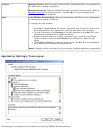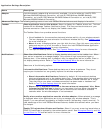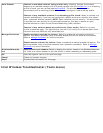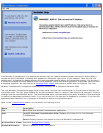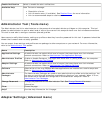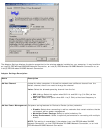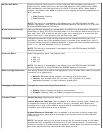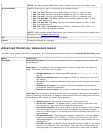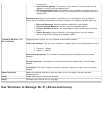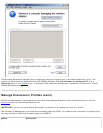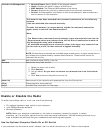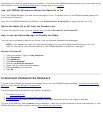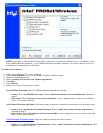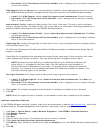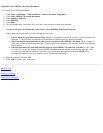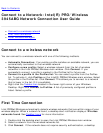
its data rate.
● Poor channel quality: The quality of the channel is low and caused the
adapter to look for another access point.
● AP dropped mobile unit: The access point dropped a computer from the
list of recognizable mobile devices. The computer must re-associate with an
access point.
Miscellaneous: Use this information to determine if an association with a different
access point increases performance and helps maintain the highest possible data rate.
● Received Beacons: Number beacons received by the adapter.
● Percent missed Beacons: Percent value for missed beacons.
● Percent transmit errors: The percentage of data transmissions that had
errors.
● Signal Strength: Signal strength of the access point that the adapter
communicates with displayed in decibels (dBm).
Transmit/Receive (Tx/
Rx) Statistics
Displays percent values for non-directed and directed packets.
Total host packets: The sum total number of directed and non-directed packets counts.
● Transmit - (Mbps)
● Receive - (Mbps)
Non-directed packets: The number of received packets broadcast to the wireless
network.
Directed packets: The number of received packets sent specifically to the wireless
adapter.
Total Bytes: The total number of bytes for packets received and sent by the wireless
adapter.
Reset Statistics Resets the adapter statistical counters back to zero and begins taking new data
measurements.
Close
Closes and returns to the main window.
Help?
Provides help information for this page.
Use Windows to Manage Wi-Fi (Advanced menu)



